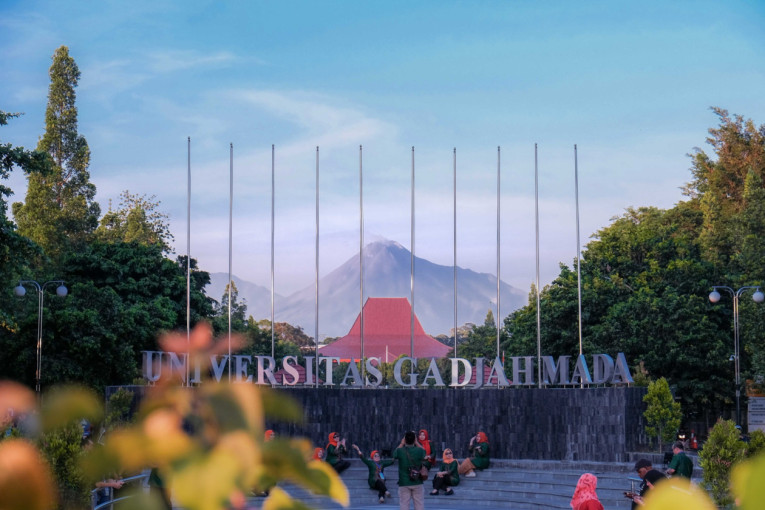
Dozens of students from Universitas Gadjah Mada (UGM), organized under the UGM Student Alliance, held a demonstration in front of the university’s Central Office on Wednesday (May 14) afternoon.
The protest began with a long march from the Pancasila Sports Hall to Balairung, accompanied by the establishment of a “tent of concern” on the Balairung lawn.
Students from various faculties participated in the demonstration as an expression of their concern and social responsibility regarding national issues.
The students also held an open discussion to elaborate on the substance of their demands.
During the protest, students conveyed a series of demands reflecting their concern over social dynamics and national policies.
They declared a vote of no confidence in the country’s institutional organizers, particularly the executive, legislative, and judicial branches.
In addition, they rejected all forms of militarism in civilian spaces that do not require military involvement.
The students also voiced their objection to the central government’s reallocation of the education budget and urged the university to create a more inclusive public space that embraces students from diverse backgrounds.
Moreover, they called for firm action in addressing sexual violence cases on campus.
Responding to the demonstration, UGM Vice-Rector for Student Affairs, Community Service, and Alumni, Dr. Arie Sujito, stated that the student protest was an expression of concern and critical awareness in response to current issues. According to him, student involvement in voicing opinions is part of a broader social responsibility that deserves respect.
“The protest reflects students’ concern and critical thinking in addressing macroeconomic, social, and political realities, including several key issues. I see this as something quite natural. And I believe students have a social responsibility to situations they believe need improvement,” he said.
Dr. Sujito further emphasized the importance of maintaining non-violent principles when expressing aspirations to avoid provoking counterproductive reactions.
He noted that the issues raised by the students, such as threats to democracy, concerns over remilitarization, rising unemployment, and the effects of the crisis on communities, are real problems that warrant shared attention.
“UGM has a responsibility to respond within its capacity. We believe these crises must be taken seriously. Hopefully, things will improve,” he said.
He also underlined the importance of both universities and the public actively identifying real issues within society through constructive dialogue and discussion.
He believes that such approaches can produce strategic recommendations for addressing national challenges.
“The key is to understand what the real problems in society are. We can have dialogue, we can discuss, and we can generate strategic recommendations to improve the country and the current situation,” the vice-rector explained.
Amid the growing wave of disinformation in the public sphere, Dr. Sujito stressed that student criticism plays a crucial role in safeguarding social sanity.
He reminded the public that the spread of hoaxes, hate speech, and fake news has clouded the atmosphere and significantly impacted public psychology.
“Right now, our public space is becoming increasingly polluted. Hoaxes, hate speech, and fake news are rampant and affect public psychology. Socially, this becomes a form of terrorizing,” Dr. Sujito stated.
He asserted that the state must respond with swift and accurate policies to provide certainty and address public concerns.
UGM, he added, remains committed to providing a safe space that upholds the academic community’s freedom of expression, as long as it is carried out peacefully and does not disrupt public order or campus activities.
“The state must improve its responsiveness so that there is serious handling and certainty. Uncertainty leaves people confused about where to turn,” he concluded.
Author: Triya Andriyani
Post-editor: Afifudin Baliya
Photograph: UGM Public Relations Office

